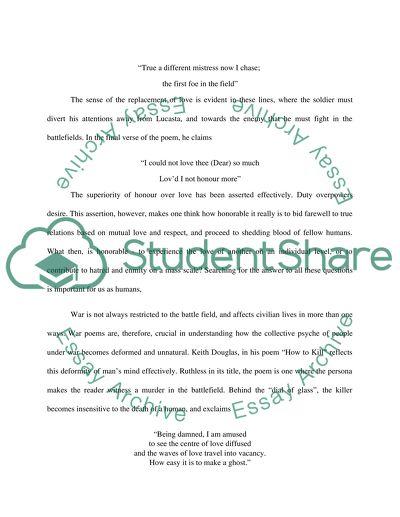Cite this document
(“A Synthesis of the Themes in Selected Poems about War Essay - 1”, n.d.)
A Synthesis of the Themes in Selected Poems about War Essay - 1. Retrieved from https://studentshare.org/literature/1467146-a-synthesis-of-the-themes-in-selected-poems-about
A Synthesis of the Themes in Selected Poems about War Essay - 1. Retrieved from https://studentshare.org/literature/1467146-a-synthesis-of-the-themes-in-selected-poems-about
(A Synthesis of the Themes in Selected Poems about War Essay - 1)
A Synthesis of the Themes in Selected Poems about War Essay - 1. https://studentshare.org/literature/1467146-a-synthesis-of-the-themes-in-selected-poems-about.
A Synthesis of the Themes in Selected Poems about War Essay - 1. https://studentshare.org/literature/1467146-a-synthesis-of-the-themes-in-selected-poems-about.
“A Synthesis of the Themes in Selected Poems about War Essay - 1”, n.d. https://studentshare.org/literature/1467146-a-synthesis-of-the-themes-in-selected-poems-about.


